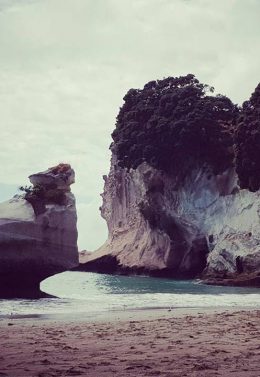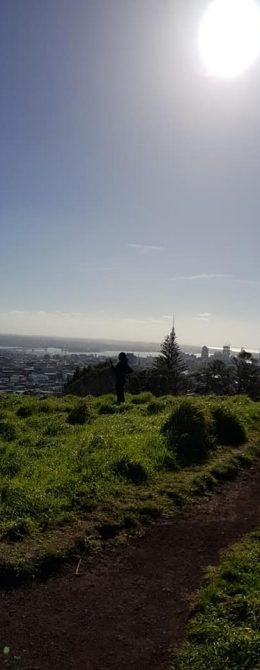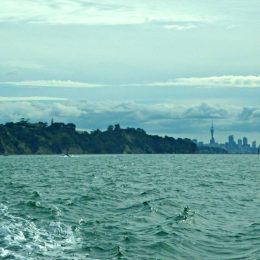Driving in New Zealand
Driving on New Zealand roads
New Zealand roads are probably different to what you’re used to. Distances may seem short on paper, but our roads can be narrower than you’re used to, cover hilly terrain, and vary from motorways to unsealed gravel roads. Seatbelts are compulsory back and front. And if you are venturing onto the mountain passes in winter, snow chains may be a good idea.
Speed restrictions are vigorously enforced and we use a demerit system as well as speeding fines and for more extreme cases your car will be impounded.(Click here to see what you can expect in $ if you are caught speeding and here to see how many demerits you will incur) Open roads are mainly 100km per hour, and in built up areas it is mainly 50 km per hour, but these can vary as well.
Drink driving laws are much more stringent than SA. Remember, if you lose your licence because of excess alcohol, you could lose your job, and may therefore lose your visa. So, it’s just not worth taking risks
In the event of a minor road accident follow these rules. For all other driving/road safety rules click here.
If you are involved in a minor or major road accident and are able to, this is what is required from an insurance perspective ” Exchange details with the other drivers or witnesses. It’s important you get the name, address, phone number, vehicle registration and insurance company of the other driver involved in the accident. If an uninsured driver hits your vehicle, it’s important that you also identify the person (ask to see his or her license and note the number if possible), the car (make, model, colour and registration number), the contact details of any witnesses and, if a police officer attended, get his or her name and ID number.”
Please read this guide on driving in New Zealand. Please also remember you only have 12 months from the day you arrive in New Zealand to convert your valid South African licence, all the information on how to convert it is here.
New Zealand Emergency Numbers
105 is the number for Police non-emergencies. 111 is the emergency number for Police, Fire and Ambulance.
You can use 105 to report things that have already happened that don’t need urgent Police assistance.
You are encouraged to go online to 105.police.govt.nz to:
*Report any situation that doesn’t require immediate Police or Emergency Services attendance
*Request an update on a report already made or add to an existing report.
*Your car or bike has been stolen
*Someone has vandalised your wall
*You’ve lost your wallet or phone, or your handbag was stolen at the library
*Someone broke into your car and might have taken something
*You’re a retailer and someone has shoplifted or driven off without paying for gas.
*You suspect a scam or drug dealing
*Your house has been burgled (if you think the burglar may still be in your home, or running down the street, do not go inside – contact Police immediately by calling 111)
Always call 111 in an emergency such as:
*When a crime is happening now – and the offenders are still there or have just left
*Someone’s in danger or badly injured like a car accident or has been assaulted.
*There’s a serious risk to human life or property
*You see a major public hazard, like trees blocking a road.
Call *555 (mobile phone only)
*For urgent but not life-threatening traffic matters that don’t need an emergency Police response
*Continuous poor driving
*Traffic congestion, breakdowns and obstructions on the highway
*555 is not intended to take the place of the 111 emergency number. Always call 111 in an emergency. *555 calls are answered with less priority than 111 calls.
Demerit Points Explained
Certain driving offences incur demerit points. If you accumulate 100 or more demerit points in any two-year period, your licence can be suspended for three months
Demerit points are given for all speeding infringements (except those recorded by speed camera), some traffic offences and for breaching licence conditions, eg a learner driver unaccompanied by a supervisor or a restricted driver carrying unauthorised passengers.
Demerit points also apply to some alcohol-related infringements and offences, for example, points can also be allocated in conjunction with a court disqualification where the court chooses to disqualify a person for less than six months.
Converting your Drivers Licence
You can only drive using an overseas driver licence for 12 months from your last date of entry into New Zealand. If you’ve been in New Zealand for more than 12 months, you won’t be able to drive on your overseas driver licence anymore. You must have a New Zealand licence.
*A valid overseas driver licence means that your licence must not be suspended, disqualified or revoked in the country of issue and must be either current or expired within the last 12 months.
Below is the link to the New Zealand Transport agency which explains it in more detail.
Where to go to convert your licence.
What you will need to apply for a conversion.
NZTA (New Zealand Transport Agency) has a breakdown of what you will need to convert your licence, South Africans and some other countries don’t need to do a theory test. Here is a list of countries that are exempt.
Plan your trip
Road traffic cameras are excellent for planning trips, have a look on the New Zealand Transport website for the LIVE TRAFFIC CAMS
You can also plan your route by going here, you get the option to choose “by public transport” as well.
If you are planning on travelling via bus, train or ferry go here for all the details.
As traffic can be extremely unpredictable and one accident can literally stop the movement on a motorway it is always advisable to have fresh water and some light snacks with you as a rule of thumb. My personal favourite is cranberries and almond/cashew mix.





